Is FIFA a corrupt organization?
What is the most popular sport in the world? The answer here is simple and is known by everyone perhaps: "football".
For many years football has never been organized, especially in its early stages in England and even after the start of the FAF. So, the creation of a global organization that unites the beloved game was a must for its continuation and the countries did not differentiate in the way they played.
From this idea, FIFA was born as a small initiative in the beginning, and over time it has become a global organization with great power and influence, which requires states and countries to dictate what they want and, in some cases, enact their own laws.
Of course, over time, the non-profit organization has moved into bureaucratic governance. Things are going very slowly in terms of developing and improving the game, bribes and corruption have become the Organization's core features in recent years that have become like companies. Even.
Although many do not care much about the organization's performance, its corruption is very clear. Here are some examples that prove this without any doubt.
World Cup 2022 in Qatar
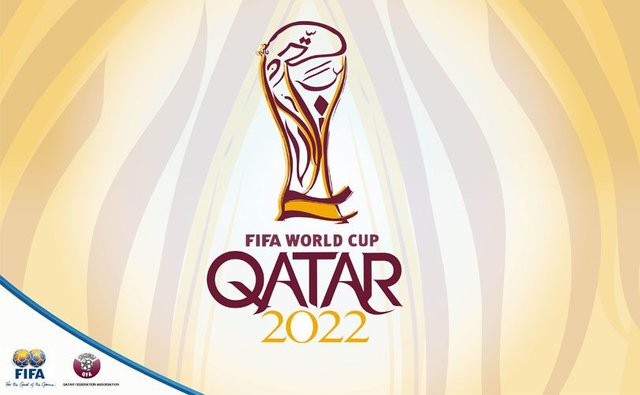
The FIFA World Cup in Qatar in 2022 is all wrong with FIFA, beginning with bribes and corruption in the organization, and even indifferent to the inhuman conditions of the new stadiums.
With the years the World Cup grew dramatically, and from a relatively small tournament in its early 1930's, it became the most important sports tournament (excluding the Olympic Games) in the world. This growth came as the number of followers and gamers increased and the progressive tournament became a tourist destination for hundreds of thousands of fans who They want to stand up with their national teams or enjoy the championship. That is why the infrastructure is crucial to organizing the tournament. This is why FIFA's decision to honor Qatar in 2010 is one of the biggest controversial events.
The first problem comes from the very small size of Qatar. Despite the richness of the country, the population is limited by only 2.5 million people. There are only 3 stadiums with a capacity of more than 20,000 spectators. The infrastructure in general is totally lacking in the absence of playgrounds, For hosting. On the one hand, and even if all these facilities were built and prepared within the window of 12 years available, the new stadiums will be completely wasted because there are not enough teams and fans to fill them after the end of the tournament.
Even ignoring the obvious problem in the absence of infrastructure, the main problem is that the tournament will take place in the very hot summer in the Gulf countries, and although this temperature may be familiar to local people it is quite different for fans and teams to participate, with temperatures up to 50 degrees Celsius In the summer, the game will not be very safe even if the stadiums are roofed and air conditioned (which is strongly questioned by the experts). Adding to the very poor conditions of the workers who are building the new stadiums, it seems like a disaster happening to everyone.
When Qatar was awarded the World Cup, everyone was surprised. Of course, the main question was how to ignore the other host countries. The list included South Korea and Japan (which together hosted the World Cup in 2002) as well as Australia and the United States. Has much better infrastructure than Qatar and without the need to create new stadiums as they already exist.
The decision was the result of large bribes provided to the organization according to observers, and so far the possibility of canceling the hosting of Qatar and providing hosting to the United States is still a possible option.
Forced sale of alcohol - Brazil 2014 World Cup
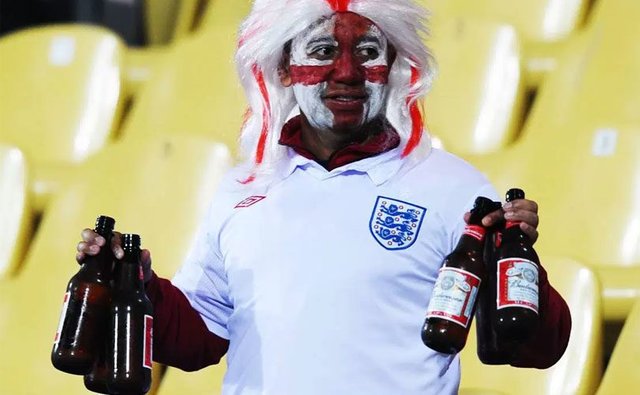
The bad level that an organization must sink to demand the return of alcohol to the stadiums despite its damage seems closer to the evil organizations in superhero films.
Brazil's hosting of the last World Cup was disastrous in the full sense of the word. The country was suffering from a severe economic collapse that affected the poor in the first place. The popular rejection was clear from the demonstrations and riots against the construction of new stadiums and the disbursement of public funds to finance the sporting event. All these bad things (which we will discuss better in the next paragraph). The real embodiment of FIFA's corruption and its badness was its pressure to allow alcohol in the stadiums.
In 2003, Brazil banned the sale and consumption of alcoholic beverages within football stadiums. The decision was simply a result of an urgent need that came after incidents involving violence, riots, deaths from excessive alcohol consumption, and the increasingly heated and potentially alcoholic drink.
The Brazilian decision came in a positive way. Of course, riots and deaths in the stadiums have been reduced to a minimum, but things were not going to go on for a simple reason: one of the sponsors was Budweiser.
Budweiser is a beer maker whose main aim is to market its products to the fans of the tournament. Here the wishes of the sponsoring company collided with the interest of Brazil. As expected, FIFA stood against the interest of the game itself and forced Brazil to allow beer in the stands during the World Cup by blackmailing the World Cup And give it to another country (though this was to be the choice of most Brazilians).
FIFA Courts - World Cup in South Africa in 2010
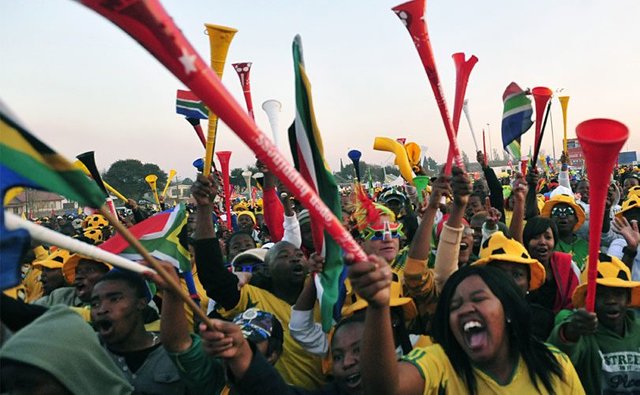
In addition to being one of the world's most boring cups, the 2010 World Cup was catastrophic in terms of transport and the courts
When the World Cup was held in 2010, it was a very important event as it was the first time the tournament was hosted on the African continent. Although the tournament was disappointing in terms of organization and even broadcast (especially with the very disturbing Vovozyla sounds) The eyes of the lovers of the game in the form of 56 "special" court created specially for the tournament because of the high level of crime in the richest countries of the African continent.
The new courts have been established under the auspices and encouragement of FIFA. From its inception, the problems were clear in terms of their very poor organization and the arbitrary manner in which two Zimbabwean men who stole a journalist at gunpoint came to trial. The verdict came quickly after two days of an incident with 15 years imprisonment for both thieves.
Of that trial, things went much worse. Another man was sentenced to five years in prison after hanging up a cell phone. Two women were jailed for wearing orange. This was an "illegal marketing" of a Dutch beer company that was not a sponsor of FIFA.
Of course, the organization has denied its connection to these courts and claimed that it is not responsible for any arbitrary decisions issued by them, but that the hosting of the World Cup was the reason for these unfair and swift trials, FIFA can not be acquitted of the charge.
Evasion of taxes and the enormous costs of organizing the World Cup
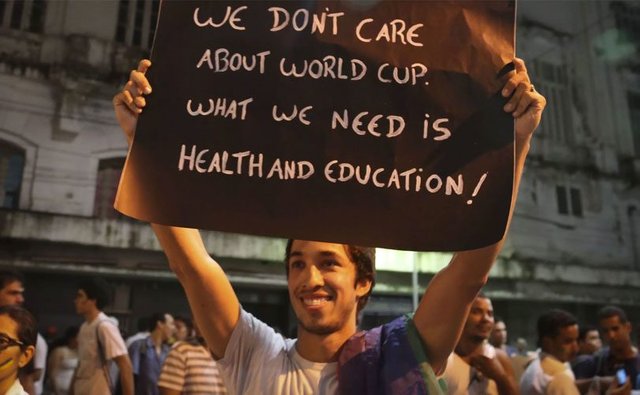
When the people who most love football against the World Cup host pretend it is obvious that there is something seriously wrong in the way things are done.
When the World Cup is organized in one country, the country needs to build new infrastructure at great cost and provide many of the conditions necessary to meet the hosting requirements, but the profits from sponsoring companies, television, transport and other contracts are not paid to the host country, Directly to the FIFA vaults, and because of its classification as a non-profit organization, all profits earned by the organization are not subject to income taxes or corporate taxes or others, but remain unchanged.
The World Cup is supposed to bring tourism, investment and infrastructure to the hosts, but a quick look at the last three World Cups paints a very bleak picture of the World Cup. Germany, which hosted the 2006 World Cup, paid about $ 12 billion for new infrastructure, Protection and others. In return, it has not been able to recover the full amount as it has so far recovered only $ 5 billion, less than half of what it paid for the organization.
South Africa, which hosted the 2010 World Cup, invested about $ 6 billion in infrastructure, but recovered only $ 513 million from its original investment. Most of its stadiums New to neglected abandoned places.
For Brazil, it was even heavier. In the middle of the major protests, Brazil paid $ 14 billion during its hosting of the 2014 World Cup. It did not recover half of the money even as the World Cup stadiums turned into ruins and the government tried to repay its debt by reselling the equipment it had been forced to buy.
In contrast, FIFA managed to raise $ 4 billion from Brazil's last World Cup alone without taking part in the necessary infrastructure and took its tax-free profits to complete the 2018 World Cup in Russia.
Extensive administrative corruption
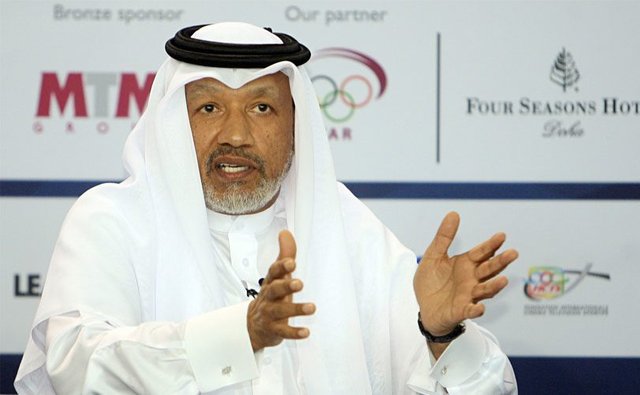
The simultaneous disclosure of bin Hammam's corruption cases with his refusal to support Blatter in the election raised many questions about the organization's tolerance of corruption.
Over the past few years, many of FIFA's secrets have begun to appear publicly. Several investigations from the organization's own moral council to the Swiss authorities (FIFA headquarters) and even the FBI have revealed a lot of stench, The most popular game.
The scandals have plagued scores of people, and more than 20 people have acknowledged bribes and corruption within the world body, but some of these issues are more interesting than others.
One of the most interesting stories is the Qatari billionaire Mohammed Bin Hammam, who was president of the Asian Football Confederation for nine years. He was also on the FIFA board of directors for 15 years. During this time, Ben Hammam was one of the biggest supporters of former FIFA president Sepp Blatter. Behind the issue of Qatar hosting the World Cup in 2022 and the smell of corruption that surrounds it.
Interestingly, Bin Hammam gave up Blatter's support in the 2011 elections. The result was Blatter's re-election, but Bin Hammam's file was opened and after he was convicted of kickbacks to vote rigging and a ban on sporting action for life.
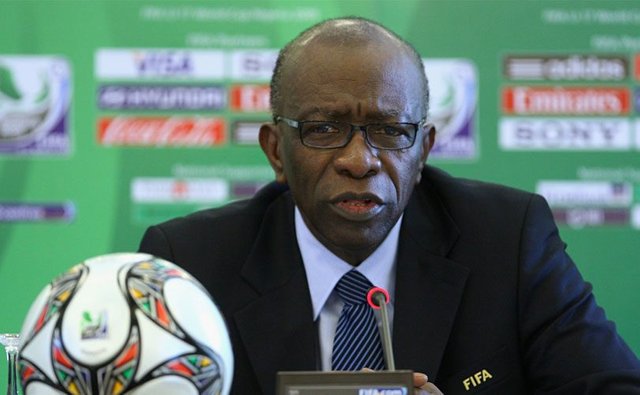
In 2014, Warner broadcast a televised statement in his country, which began a satirical campaign by the famous comedian John Oliver against him.
Another case is the case of Jack Warner, who holds the citizenship of Trinidad and Tobago (a small country in Latin America near the coast of Venezuela) and has worked for several decades in important sports positions, most recently as vice president of FIFA before resigning in 2011 after FIFA itself.
FIFA's investigations have been completed without disciplinary action, but other investigations have tracked Warner, his history of selling black pain tickets and asking for money for his votes in hosting the World Cup, and even his embezzlement of funds donated to Haiti's victims in 2010.
Later, in 2014, the FBI investigation began (ironically, the least country concerned with football was the one who led the organization's scandals that ran the game) with the organization's officials. As a result, a few dozen officials were convicted including Warner, who was still trying to fight the decision to send him as a prisoner To the United States, and more recent investigations led to the conviction of both Sepp Blatter (President of the Organization) and Michael Platini, President of the European Football Confederation (UEFA), where they were isolated and banned from the sport for eight years.
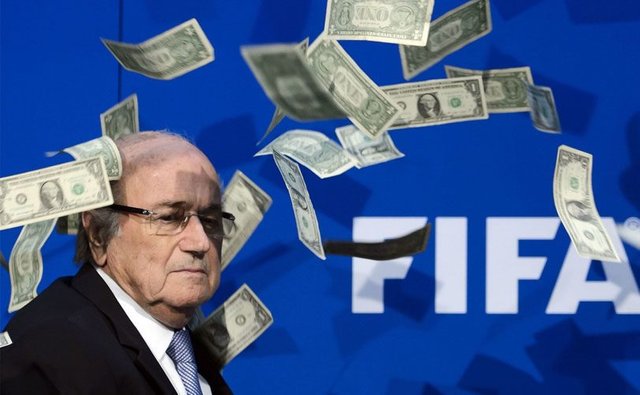
For 17 years, Blatter has led the organization into a swamp of corruption through a lot of bribes, suspicious behavior and controversial statements.
As of the writing of this article, both Blatter and Platini are still free despite being convicted of various corruption cases. Although they have been suspended from working as many other managers in the organization, there is an opportunity to survive any punishment and return to work even if they succeed in Appeals for cases against them.
This may paint a grim face for the future of international football, especially as the pictures of the demonstrators against the World Cup in Brazil are still in memory, but if it is subject to real change this change will come because of the United States, where football is not among the most popular sports even .
Sources The Guardian & BBC & Gallup CNBC
BBC & Sports Net & The New York Times
_______________________________________________________

Of course it is